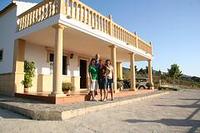Before starting, I do need to emphasise that Spain is, on the whole, a well-regulated country and not the ‘wild west’. The vast majority of agencies, property developers and construction companies operate legally and appropriately. Spain remains a top destination for people buying holiday homes or wanting to retire in the sun and there is no reason why you can’t safely purchase property and have your rights protected.
Over the years, as a practising lawyer, I have had first-hand experience of many different scams and tricks that are used by dishonest operators in the construction and property development business. Expatriates are usually at a disadvantage when it comes to knowing the language and/or much about Spanish property law. Additionally, many older people – especially in ill health – are more vulnerable as the may be coerced into accepting a situation.

Common property purchase problems
The following examples highlight areas where people have had problems in the past and things to watch out for when purchasing a property in Spain:
1) Private sale agreements: this situation might be suggested as a way to avoid tax, or more simply, the buyer may not realise that the agreement might be illegal. A sale should be recorded as a public deed in the presence of a notary. The risk here is that the seller could sell the property again to another party.
2) Incorrect description of the property (fraud): this ranges from the misreporting of the number of square metres of the property to incorrect inventories of fixtures and fittings.
3) The introduction of a third-party into a transaction who acts as an intermediary between the owner of the property and the legally registered owner, who sells the property – usually under private agreement, with the issues raised above – and raises the sale price by 33-55%.
4) The sale of a property built on agricultural or other land which has been constructed in violation of building regulations and/or in the absence of the required permits and/or on land which is then re-categorised as an urban area. In the first case, it is possible that such a property can be ordered to be demolished and in the second, the ‘land grab’ law can be applied to expropriate land for road/other use.
5) The sale of a property that does not have a certificate of occupancy ( certificado de habitación), which may be due to the fact that it has not been constructed with the necessary permission and is not recognised by the local authorities.
6) The sale of off-plan properties (advance sale of a property before its construction or completion) without refund insurance in place to protect any deposits (illegal under Spanish law).
7) The sale of new properties which do not have three- or ten-year insurance plans in place to cover damages caused by hidden defects in the construction.
8) Charging for temporary (builder’s) electricity supplies which are only meant to be used during the construction period (illegal under Spanish law).
9) Sales in the presence of a notary through a ‘verbal representative’ or ‘translator’ provided by the seller to represent you as the buyer. As you might imagine this type of situation is open to abuse as this representative can act in the interests of the seller, rather than in your interest.

Advice when buying property in Spain
1) Don’t fully trust any developer or estate agent. Part of the job is appearing trustworthy, being friendly and helping in every way they can as you consider buying a property from them. This co-operation is there to close a sale and ensure they get their commission; it often disappears completely when the deal is done. It comes as a shock to many people that their ‘new best friend’ does not care about any problems you now have with the property or transaction.
2) Don’t be pressured into making a deposit on a property until a lawyer has been able to make a full evaluation of its legal status (enquiries with a Notary, the Land Registry and the local town hall, etc).
3) Don’t sign any documents or purchase contracts before having them checked by an independent solicitor (that you have contacted yourself, not a referral from the seller). 90% of the contracts drawn up by developers that we have seen include unacceptable clauses, which range from unpleasant to expensive/abusive. Even if you have a good grasp of Spanish, some of these are not immediately obvious without good knowledge of Spanish law.
The best advice I can give is to make sure you fully understand everything that is explained to you. You might feel uncomfortable or ignorant at times, but ask for clarification and get things in writing. Given the significant amount of money you invest when buying a property, make sure you protect yourself by always seeking third-party independent advice from an expert.
Professional help avoids complications and is relatively inexpensive. Sitting back in the sun in your new home in Spain without any legal worries is priceless…
By Oscar Ricor - Ricor Abogados
www.ricorabogados.com
Email:
Tel: +34 687 888 873 Fax: +34 966 701 226
Pza. Cap de Pont Nº7. 1º-A. 03181
Torrevieja (Alicante), Spain


